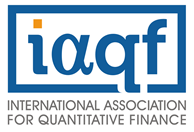
6:00 PM Seminar Begins
7:30 PM Reception
Hybrid Event:
Fordham University
McNally Amphitheater
140 West 62nd Street
New York, NY 10023
Free Registration!
For Virtual Attendees: Please select Virtual instead of member type upon registration.
Proof of Vaccination Upon Entry is Required for In-Person Attendees
Abstract:
We examine the relation between the social ties between firms' headquarters locations and co-movements between their fundamentals and stock returns. Our evidence indicates that firms in the same industry with socially connected locations exhibit co-movement in fundamentals and stock returns that exceed those without socially connected locations. However, the stock returns reflect the location information with a lag. To exploit this lagged relationship, we form portfolios that buy (sell) stocks when their socially-weighted industry peer returns in the previous month is high (low). The value-weighted version of this portfolio generates a monthly alpha of 84 basis points. Social peer firm returns also predict firms' future earnings surprises, analysts' forecast errors, and earnings announcement returns. Further evidence indicates that the mispricing is stronger for low-visibility firms and for firms located outside of industry clusters, and that the effect is not subsumed by other sources of return predictability.
Bio:
Lin Peng is the Krell Chair Professor of Finance at Baruch College, the City University of New York, and a Visiting Professor at Princeton University. She has extensive expertise in the areas of behavioral finance, social networks, ESG, institutional investors, FinTech, and market structure. Professor Peng's recent research focuses on utilizing big data, artificial intelligence, and machine learning techniques to analyze the role of social networks in financial markets. She is also interested in designing CEO incentive contracts that encourage corporate social responsibility.
Professor Peng’s research has been published in leading economics and finance journals such as the American Economic Review, Journal of Finance (lead article), Review of Financial Studies, Journal of Financial Economics, and Journal of Financial and Quantitative Analysis. She has received the Best Paper Awards at the International Conference on Smart Finance, the Driehaus Center for Behavioral Finance Research Prize, and the Chinese Finance Association Meetings. Her work has been featured by media outlets such as the Wall Street Journal, Financial Times, Reuters, Institutional Investor, and the UCLA Anderson Review. She is a recipient of many research grants and awards, which include the UNPRI research grant, the Keynes Fund for Applied Economics Research Award, and the Institute for Quantitative Research in Finance Research Award, among others.
Prof. Peng is a member of the management committee for the Keynes Fund for Applied Economics at the University of Cambridge and is an associate editor for the Journal of Empirical Finance and Financial Management. She was previously a Director of Research and Visiting Professor at the University of Cambridge and a visiting professor at Columbia University. She has taught various courses at the undergraduate, master's, and doctoral levels, including Investment Analysis, Social Finance, ESG and Sustainability, and Behavioral Finance, and has been honored with the Zicklin School's Teaching Excellence Award.
Prof. Peng received an MA in Biology from Wesleyan University and a PhD in Finance from Duke University.

